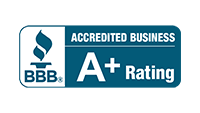
I was having coffee with someone who works in a senior marketing role at a startup in Boston.
I want to pick your brain on PR she said.
OK, shoot. What about PR?
Well were having a hard time getting any press.
This company is well funded. They have a solid team. And theyre in a space that is filled with boring old incumbents. There should be plenty of angles here.
So I asked her what she meant when she said press.
You know like Wired, TechCrunch, the New York Times, Wall Street Journal, Boston Globe??that type of stuff.

^ thats why they are having a hard time getting press.
And this is something that countless startups get wrong with PR today.
Think about it: You dont rely on those places to get your information on a daily basis any more, so why would your customers?
The Landscape for Press Has Changed.
And we know this
But just like most things in startups, we dont often think about what we actually do as consumers. We have a hard time separating ourselves from the things that we want to do with our businesses and how we actually do things as people.
How often have you read the WSJ or NYT and heard about a company, product, or idea for the very first time? That almost never happens any more.
We dont start our days with the the Journal or the Times any more.
Sure, we check whats going on there, but we start our day doing things like checking Twitter, reading blogs (and Medium articles) from our favorite people and companies??and we listen to podcasts on our commutes on the way to work.
Getting PR today starts with understanding that what PR is has changed. More people have audiences today than ever before, and anyone can be a publisher.
PR today is all about reaching an audience??not about getting a logo to put in the footer of your website.
And getting more PR starts with understanding that the landscape has changed??and as a result, the tactics that you take to get PR need to change too.
Why Most Startups Suck At Getting PR
Most startups struggle to press because their pitch starts from the inside out. And that make sense. Its human nature. You started a company (hopefully) because you so passionately believe that youre solving a big problem or meeting a huge need in the market. Spoiler alert though: most people dont care.
Have you ever read the comments on Product Hunt? Every single day, hundreds of new products are posted and launched there. And every single day, there are countless comments that ask:
How is [New Product] different than [Existing Product]
Even if you really are different, theres just so much noise out there that it is so hard to stand out with your product story.
Take any product in any industry, and there are at least a handful of similar products. Heck I mean there are even three different people trying to invent new ways to send ROCKETS into SPACE.

So there are probably at least a handful of existing products in your industry, too.
And even if you have dreams of landing a nice story in the NYT or WSJ, there are usually only two typical pitches work:
- A huge round of funding led by a well known investor thats always on the forefront of the next big thing.
- A handful of powerful customer references (and that story needs to be something more than someone saying this marketing tool got me 200% more leads! or because of X product, I can now run my business while on the go!).
How to Start Getting More PR for your Startup
Knowing that the landscape has changed, here are the two keys to getting more PR today:
First, your pitch needs to be all about you. Throw out your industry and your game changing technology and talk about YOU. Yep. You, as a person??as a founder, as an entrepreneur, marketer, whatever. This is the story that will give you a better shot at landing PR. We (people!) love hearing tactical, authentic stories about businesses today. Its why we read Medium. Its why we listen to podcasts. Why we follow brands on Snapchat. Use that to your advantage.
Take the crew at Buffer for example. Leo Widrich and Joel Gascoigne are PR BEASTS because from day one, theyve been sharing their story as theyve been building a company.
Maybe you started your company after working at Public Company X under legendary Manager Y for 5 years and thats why you started this company.
Thats your story.
Or maybe this is just straight up the first time youve run a business??start sharing all of the things youre learning as youre building.
People would rather hear about those stories than about how youre disrupting hiring, travel, or marketing technology for the 73rd time. Authenticity is the way that the best companies are getting PR today. Figure out what angle you can take to do the same.
This is an especially good strategy for your company to take if youre still pre $1-5M in ARR and dont have a ton of news or hundreds of happy customers that will go on record for you.
Second, the channels youre using to get press need to change. Stop chasing the WSJ, NYT, Wired and TechCrunch and focus here:
- Speaking engagements. Youre most likely an expert in your industry if youre building a company around this business??so find every conference thats relevant and try and get yourself a speaking slot. And this doesnt mean make a list of the top 23 conferences in your industry. Find the small ones??speaking in front of 100 people who will love you will have a bigger impact on your business than speaking in front of 1,000 people who will be checking their phones the entire time. Plus, speaking forces you to sharpen your story for when youre ready for that dream interview.
- Podcasts. Think about the explosion in podcasts. There are podcasts for every single topic, niche and industry you can imagine. Go on every single podcast that you can before you starting pitching press. Podcasters are like mini PR outlets??and some of them arent so mini. There are thousands of podcasts that have THOUSANDS of monthly listeners. I cant stress enough of much of an impact going on podcasts can have (and its the most authentic version of PR??you speaking directly into someones ears as they shop, workout, commute to work, etc.) And not only can you find every single podcast in your industry to go on, but there are also a whole set of sub-topics you can talk about. Lets say youre the founder of a startup that is building marketing software. Id find every single marketing podcast to go on (for one angle) and then every single podcast about startups and entrepreneurship for a different angle. There are even podcasts about company culture, work/life balance, etc. ? my point is there are so, so many angles. Find them all before worrying about getting some print PR.
- Content. Content is PR, but we just dont think of it that way. Just like you should find every podcast to be on, apply the same stuff we talked about there and find every single site and blog that will take your writing. And this doesnt just have to be media sites??every brand is a publisher now. Find all of the blogs you read and the ones you like in your industry and find a way to write for them. Nearly everyone takes contributed content now??you just have to put in the time to write something original. For example, if you have a SaaS sales product, make a list of the top 20 startup sales blogs and try and write posts for as many of those blogs that will take your stuff. You can also use Help A Reporter Out as a tool to source opportunities (you get a daily email with a list of reporters and bloggers who are looking for quotes on particular topics; its a great free way to get more links and press).
- Figure out whos already written something about your competitors. As we talked about earlier in this post, youre probably not the first company in a given industry. You can actually use that to your advantage for PR. Find everyone thats ever written about one of your competitors and reach out to tell your story. And dont just look at the traditional press??make a list of every podcast interview theyve done, site theyve guest blogged for, AMAs their founder has done and more. You can use a tool like Mozs Open Site Explorer to find all of the backlinks to your competitors blog, homepage or particular landing pages??or use BuzzSumo to find influencers on a particular topic??and then make a really targeted list of people to reach out.
Whether youre struggling to get PR or just think you should be getting more PR, spend more time focusing on the tactics in this post (content, podcasts, speaking) than pitching traditional media outlets and journalists.
And switch up your angle too??make it more about you than the industry youre trying to disrupt.
We love reading and hearing authentic stories from real people, and I bet your prospects and customers do too.
Oh and this PR stuff isnt just something I wanted to write about on Medium??this is something we focus on at Driftand it works.
Since the fall weve had over 70+ PR features??none in the WSJ, NYT, or TechCrunch??and thats led to us doubling traffic to Drift.com, growing our blog traffic 7500%, and increasing organic search by 4x.
Now go and get some more PR of your own.





